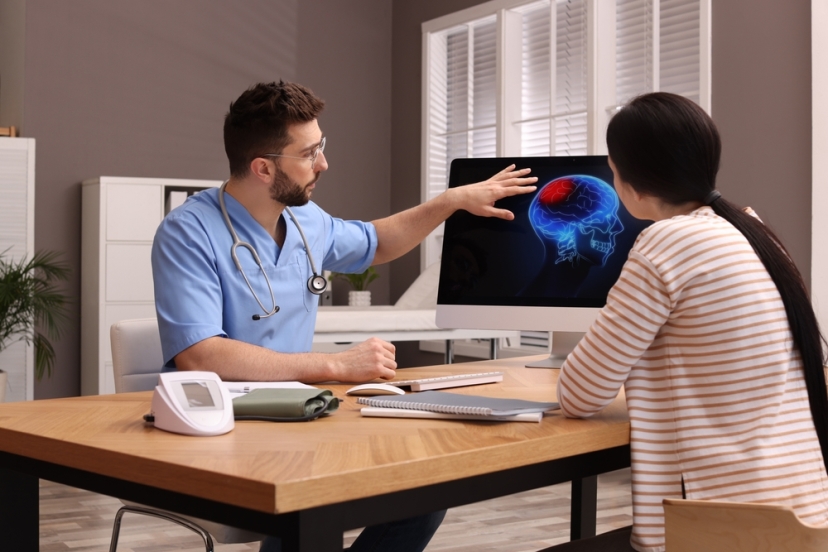Hemifacial spasm
Hemifacial spasm (HFS) is a nervous system condition that causes involuntary face twitching or contraction of facial muscles. It happens on one side of the face. The hemifacial spasm can range from mild to severe, usually beginning with the eyelid which is most commonly found area, then spreading to the muscles in the lower part of the face.The cause of HFS is from irritation of the facial nerve or often with a blood vessel pushing against a nerve connected to the brain. In some cases, the exact cause is unknown.
Epidemiology and risk factors
HFS can affect people of all ages but it is most frequently diagnosed in middle- aged and the elderly. The incidence is higher in female than male. Although the exact cause is still unclear, there are factors that may increase the risk of HFS including a blood vessel pressing on a facial nerve, facial nerve injury or a tumor pressing on the nerve.
The main symptoms of HFS
Uncontrollable twitching or contraction of muscles on one side of the face that comes and goes, the severity may increase as follows
1. It starts around the eyelid and can cause involuntary blinking or closing of the eyelid
2. When the symptom worsens, the spasms will spread to cheek, mouth and sometimes to jaw
3. The frequency and severity increase when symptoms appear
4. Symptoms intensify when we get stressed, fatigued, or anxious
5. Often, no symptoms are shown during asleep
Diagnosis
HFS is mostly a clinical diagnosis which is based on the characteristics of spasms on the face; requiring an expert, a study on MRI or MRA. This imaging study will be used to identify the compression of blood vessel on the facial nerve or other causes such as nervous system tumors.
Treatment
Treatment options for HFS have the purpose to relieve the symptoms as below:
1. Anti-epileptic drugs (such as Carbamazepine) can help relieve the symptoms for some patients but it usually provide unsatisfactory outcome and it can also produce side effects
2. A Botox (botulinum toxin) injection is the effective treatment, Botox will be injected into the affected muscle to temporarily help reduce or relieve the symptoms of muscle contractions. However, botox injections have to be performed by an expert because it may lead to facial muscle weakness, and distorted face. Patient may be unable to close the eye properly if done by non-expert personnel, and the injection must be repeated every 3 months as the Botox substance will lose its effect.
3. Microvascular decompression – MVD. In case of the compression of blood vessel on the facial nerve, MVD surgery can reduce pressure on the nerve by isolates the nerve from the pulsating effect and pressure of the blood vessel. This method has high successful rate and can relieve muscle twitching permanently. The risks from the surgery are minimal because it is not a brain surgery. Microscope is used and blood vessels are dissected away from the nerve, the wound is minimal and the recovery time is short.
Opportunity for recovery and treatment
Although HFS is not a life-threatening condition, it can have a significant impact on quality of life due to inconvenience, embarrassment in society or daily activities interruption. The chances of recovery for people with HFS vary from patient to patient. Botulinum toxin injections can temporarily stop spasms but must be repeated every few months. MVD surgery has the potential to provide permanent relief for patients.
In Conclusion, HFS is the condition that requires the continuous care of professional doctors. HFS patients should consult expertise neurologist or neurosurgeon in order to find the most appropriate treatment for each patient.
Dr.Sermkiat Lolak
Neurosurgeon
Neurological Center
Phyathai 2 Hospital
You may find our specialist here at Neurological, Phyathai 2 Hopsital
Phyathai 2 Hospital
International Correspondence Center
Tel: +66-2617-2444 ext 2020 or 2047, Email: onestop@phyathai.com
 @pt2_inter
@pt2_inter
 Phyathai 2 Cambodia
Phyathai 2 Cambodia
 PT2Chinese
PT2Chinese
 phyathai2inter
phyathai2inter
